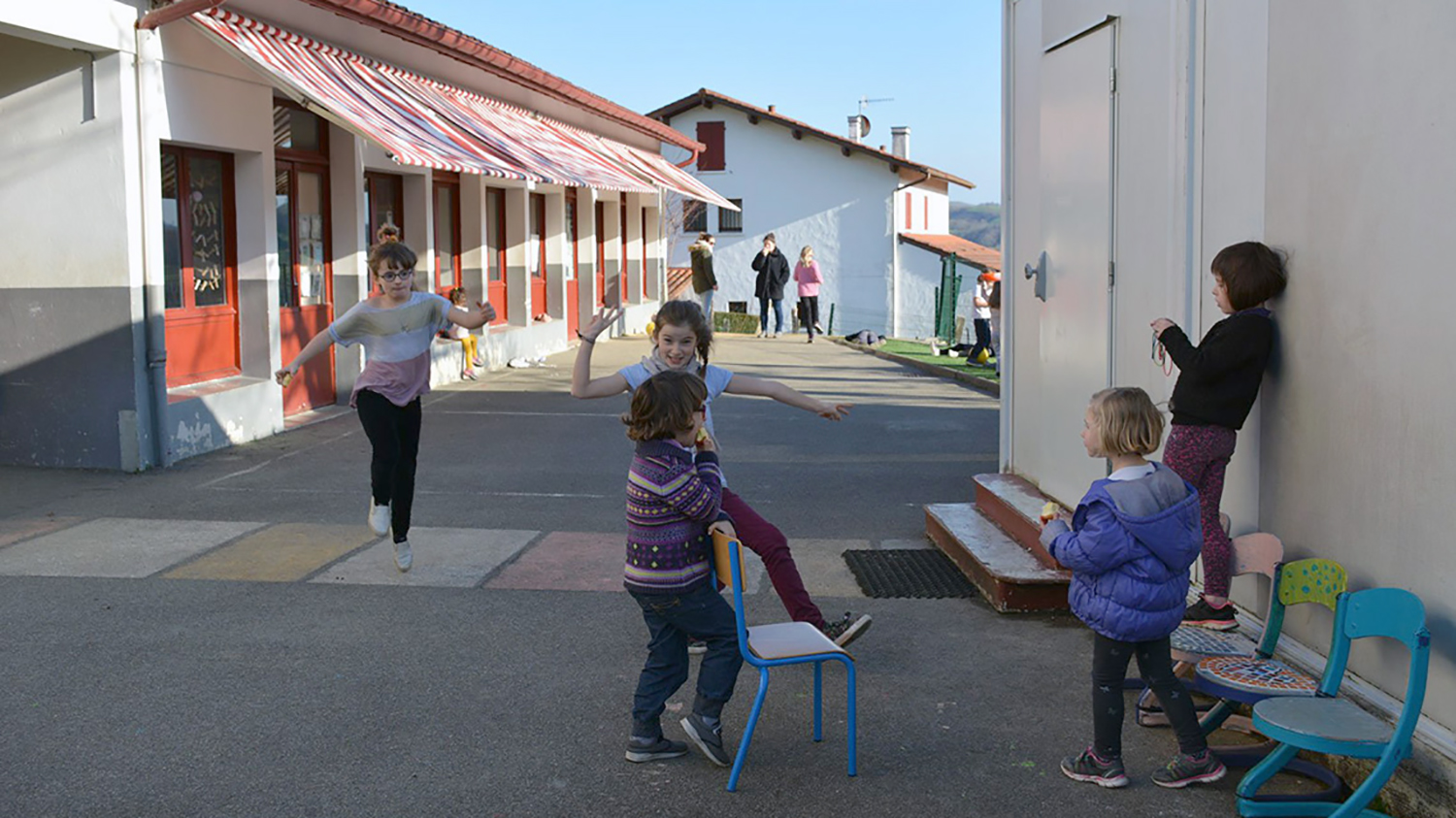"Euskera is my place, I'm like fish in the water"
- It comes from Argentina in the Basque Country Maizorder of Lazkao. Along with him, the eleven students were two months old and returned to their countries. Surprisingly, we still have the highest level student, who dances the Basque language better than many. Marcela Inda. Marcela Inda.
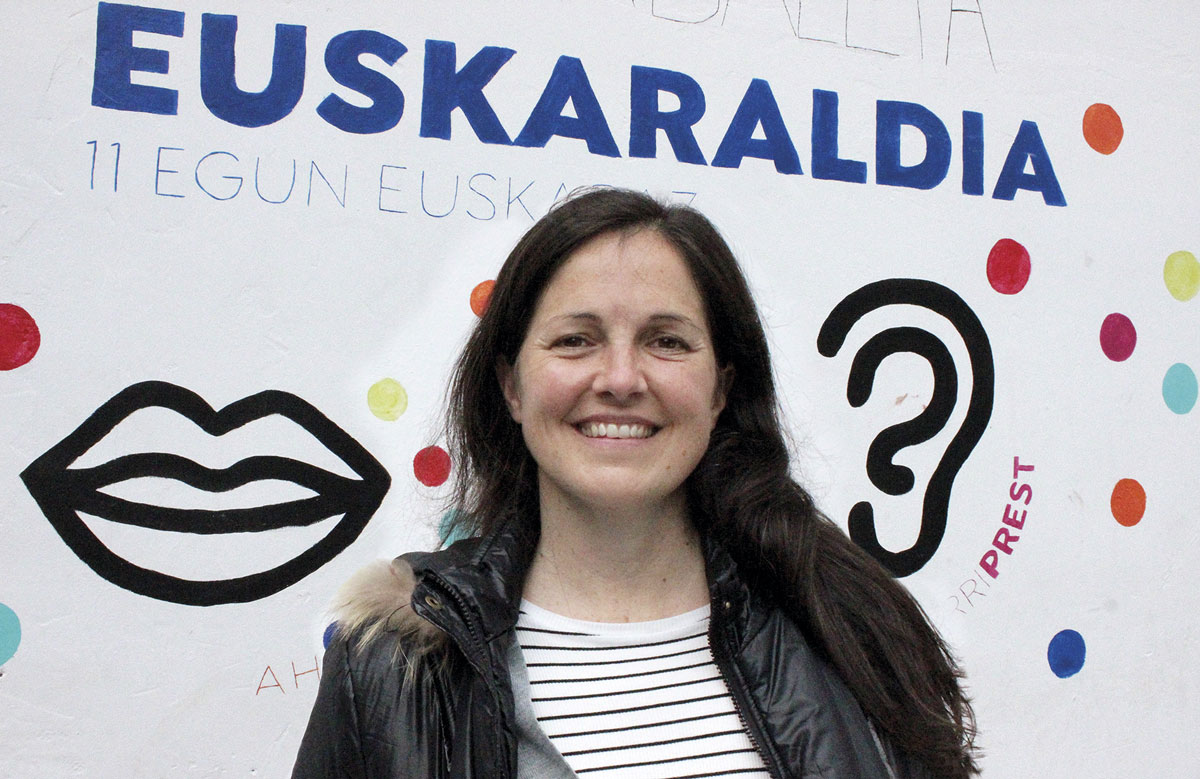
Filosofia ikasketak egina, antzerkigintzan jarduna, euskara irakasle Argentinan, aurtengo urtarriletik ekainera bitarte ikasle Lazkaoko Maizpide euskaltegian. 2009an hasi zen euskara ikasten Buenos Airesen. Handik urte bira Euskara Munduan programan zen, eta, laster, Lazkaoko euskaltegian. Berriz etorri da aurten, Hego Amerikako hainbat kiderekin batera. Haiek bi hilabete igaro eta joan ziren. Indak C1 azterketa du begiz joa, ekainean. Hortxe da bitartean, euskaraz maitasunez hitz eginez, eta Joseba Sarrionandiaren liburuak bata bestearen atzetik irakurriz.
You like to speak in Basque and you cannot recognize that you are Argentinean...
I really like Euskera, I like Euskera and I feel like it. And, in my favor!, I am not ashamed, I don’t care about making mistakes, when we are talking we all make mistakes… Among the students, on the other hand, there are several who don’t want to talk, afraid to get it wrong. I have nothing of that, I'm wrong, but go ahead. We also make mistakes in our mother tongue, they are typical of speech: not making whole sentences, not rounding what we mean... There are people who speak as writing, who do not know how to speak otherwise. Boring, right? Ja, ja…
You speak
great… I don’t know how you’ve succeeded in learning so well… It’s the
force of love. It's no more. I have already told you, I love the Basque. I started studying Basque in 2009 at the Euskaltzaleak Association in Buenos Aires. For the first two years, I did no more than go to class. I started from scratch, I knew nothing, neither “yes,” nor “no.” Nothing. And as soon as I started studying, I fell in love with language. And, for example, in the case of Basque dances, I have not had that. I've only been once in Argentina's Basque Week. I'm not very folkloric, if you will. In this sense, I am not a stereotype of the diaspora. I have a strong relationship with language especially. It attracts me. Because the structure you use to build phrases!
In Euskaltzaleak, he said that he was only going to the Basque classes...
I went to class, but I did not participate in the meetings or in the acts of Euskaltzaleak: my job was to go to class and I went to bed twice a week, and I always did the work of the school. So I spent two years. Then I started participating in the Euskaltzaleak initiatives, and in 2011 I also joined the Euskara Munduan program. I went a long way that year, and I'm going to tell you why: the program lasts four years, and I entered the room. I mean, I mean, my peers were fourth year old, and so they knew much more than I did. I had to study on my own to reach its level. I remember how I learned the zer-nori-nork paradigm, the shape of the past, just me, and confuse it. In 2012, I came to Maizorder, I spent three months in Lazkao, from September to November, and I learned a lot.
And when you go back to Buenos Aires?
On the flip side, you have to do everyday life! There we cannot speak in Basque every day. We do not want resources: Internet, eitb.eus/nahieran… But that’s not something everyday either. We are lucky enough for the Basque people, because we have several options, some teachers, some friends, who know Euskera. But from Lazkao I went back to Buenos Aires and started teaching in Basque. First, of course, those who wanted to start studying, and so, I was able to keep my Basque, because there is a lot of learning about teaching, you have to think about how to explain things, identify the main mistakes that students make… On the other hand, I like to read, before I read in Spanish, and then I started in Basque.
What to read, for example? Press, literature, science?...
What I love most is a writer. Joseba Sarrionandia In 2012, when I was here, I bought all of your narratives. So it was very difficult for me, but I picked it up and took it to Argentina, as if I had a challenge. That was my first step with the work of Maiz[onandia]. It took me a lot to read, but I finished the book! And since then I've kept reading more of his books: I am not from here, frozen friend, will be the Colossal, the letters to Ainhoa, the malaise of words, the first of the candidates from Havana: Is life not very dangerous?... I also bought the other two from Havana. And last year, please listen and record well. Are we Moors in the pandemic? I read it. When I bought it, I thought: “But when do I have to read this?” I wanted to read with some other friend, like in collaboration, to make it easier to read, which book is complicated, and also I didn't know anything about the history of Africa.
"Anyway, in Euskal Herria I always speak in Basque. I have travelled eleven thousand kilometers to come here and speak in Basque!"
But you read it...
Yes. “If I don’t read in Pandemic, I’m never going to read it!” I said to myself and read it during the lockdown. I liked it a lot, a lot. Now it's my bible! Everything is there. The servant is in Africa, and from Africa he explains everything. It's fantastic! To laugh, to cry, or to get angry! And the economy, politics, history, language -- it's all there. And the truth is, Reading is often hard to read otherwise. However, Kirmen Uribe, Karmele Jaio, Bernardo Atxaga, Uxue Alberdi,
Eider Rodriguez -- I've read them. But less.
He is a student in Lazkao and a professor in the Basque Country in Buenos Aires. Is that what you learned, the magisterium?
No… I studied philosophy, but I realized that philosophy is not very true. And from there I went to the theater. But living from theater is hard. Last seven years I have been the administrator and coordinator of a theater in Buenos Aires. I stopped working and I came to Maizorder in January. When we come back, we will see what is coming. I'm going to be a professor of Euskera, but from there you can't live. More than that is necessary. We get paid little. I teach the Basque because I want it.

"I have cousins in Oroz-Betelu, they're all Castilian speakers, they don't understand why I'm here learning Euskera."
Because you want it, he says. You've learned Basque and you've shown it. You have done more than many here… I know that
the use of Euskera is a problem. It is obvious. However, I would highlight the other side: I have the opportunity to come here and speak in Basque with the people, and I take every second to do so. That's what's worth. But I know the situation here. In any case, in Euskal Herria, I always speak in Basque. I have travelled eleven thousand kilometers to come here and speak in Basque! So here, in Euskera!, and therefore, once, go to the San Sebastian train station, go to the window, ask about the time of the train, the price of the card… I always in Euskera, and the window in Spanish. But as I understood, that's how we did the interview: I ask the question in Basque, the same answer in Spanish. A five-minute interview! I also got angry...
Here, many do not know Euskera. There are eleven in the authorities.
And a fashion singer tells him just as he's going to make his next album in English -- and who am I to judge anybody? I'm going to do my thing, my effort. “Don’t you want to learn Basque? Sorry, you miss the opportunity, because it is a very nice language.” Nothing else. I am not a linguistic policeman, because I have the opportunity to speak in Basque here, both in Lazkao and in Aretxabaleta. I have friends known in Euskaltzaleak in Aretxabaleta...
On your return you don’t know what you’re going to do for your job, but you’ll learn Basque.
Yes. However, last year I only had a team and because of the pandemic we acted online through the zoom, from March to the end of the year. He was very tired. My students like zooming classes more than I do! I don't know if they do well, or what it is, but they don't lose class. They can make peppers, but they don't! Each class is connected from the first minute to the end! “What, are you tired?” I ask you when you finish the class, but they do not: “No, no, we’re fine, go on, go on!” I prefer classroom classes, I enjoy a lot more, I really like them, but at the moment you can't.
What is the place of Euskera in the Basque Country? There are
a lot of Basque centers in Argentina, and they all usually have a dance group, a pediment, a restaurant… As for the Basque group, it is always on the fringes. In Buenos Aires, for example, there are Basque centers based more than in Euskaltzaleak, but perhaps not with more students. In Euskaltzaleak we have a lot of students. Right now I couldn't say exactly, but one hundred and fifty? Apparently. Euskaltzaleak, for its part, also offers online courses, especially this year, which also helps a lot. Of course, there are also classroom students. These are grouped at headquarters. Not last year or this year, but the rest. The Euskara Munduan program of the Etxepare Basque Institute drives Euskera classes in Argentina, Uruguay, Chile and Brazil, and thanks to this program, many Euskal etxeak teach Euskera classes. To do this, local teaching staff are specifically trained. In my case, I did the B2 study within the Euskara Munduan program in 2018 along with other Basque professors in Buenos Aires, and thanks to this program, for example, this year we have eleven South American professors to Lazkao. They went, and I'm here, waiting for C1 in June.
Are online courses successful in Buenos Aires?
Yes. Buenos Aires is a very large and sometimes very chaotic city. The Basque country may not have time to go to school and come. When I started studying, for example, we did classes twice a week; I mean face-to-face. Now nobody wants that. Once a week, the best! You may have to cross the city to go to the Euskaltzaleak headquarters, and the time it takes to do so cannot be known! In one, that the metro has stopped and in the other, that there is a demonstration and that cannot be passed. That's always the case in Buenos Aires, it's a chaotic city where you have to spend some time getting to the places. Online courses are an alternative.
What brought him to Basque classes? Why did she start learning Basque?
Look, then… Our father was born in Oroz-Betelu. José Luis Inda Erdozain, by name. He didn't know Euskera, but his parents did. I didn't know my grandparents because they died very young. When my father was 11, the family moved to Argentina in 1950. Our father remembered with great affection the time lived here, and it was remembered that it had nothing to do with the Basque. In 2004, our father fell ill and died. It was a huge blow to me. My father left without realizing it, and it occurred to me to start reflecting and learning Euskera. I always had the desire to reclaim the language of my grandparents. The godparents were Bibiano Inda Garde and Martina Erdozain Urbelz. I am studying Batua, but the next step will be to study the dialect of Oroz-Betelu or Artzibar.
Is Basque spoken in Oroz-Betelu?
No, not long ago. I have my cousins there, they're all Castilian speakers, they don't understand why I'm here learning Euskera. “Have you come to study Basque from Argentina?”… Don’t get in your head. For example, my father said that the parents did not speak Basque, although they spoke among them. But reading the story you realize that Euskera was forbidden to speak on the street, and that when it wasn't forbidden, it was dangerous to speak in Euskera. My aunt, our father's sister, was four years old when she left here. Her first memory is that in the town of Tandil [Argentina], on the street, she is caught by her mother's hand and another woman comes to her. Also the Basque Country. The mother has been spoken in Basque and the mother's reaction is to intimidate and nervous, and to answer in Spanish. They brought him a lot of fear from here to there. Then we learned that his grandfather Bibian was blacklisted and had to leave. But my father didn't know that. They never talked about it, apparently.
“My truth – mine, that of others may not – is in Basque… and in Sarri’s books. Sometimes I think I learn Basque to read the books of Sarri."
You have said that the cousins here do not understand their desire, that clumsiness of learning euskera.Los cousins of our father who are here did
not have the opportunity to learn Basque, as our father did. Their children did go to the ikastola. But look, in our house we've been three brothers. My sister is older, my sister is younger. They exist in our father's village, Oroz-Betelu, but in terms of language, they have nothing to do with it. My mother is Argentinean, she doesn't understand my wish, but she sees me happy and that's what's worth. I think he is used to learning things that are not “worth” at all: Philosophy, theatre, and now Basque! I am consistent in that, at least! Ha, ha... And don't think my sister, or my brother, understands this love. But, half wrong, they respect me, they've understood that Euskera is a very important thing for me.
So many theories, praxis and pragmatics and, in the end, the feeling inside you, an emotion.
Look, in 2012, when I was in Lazkao, the Gerriko association hosted a guest event by Harkaitz Cano. Twist has just been published. He did not read the book, of course, because at that time he did not read in Basque. They invited me and I went... When they started talking, I gave him a cry. I felt that my membership was here, that it was part of the culture and language here. “I’m from here,” I felt “I’m not from Lazkao, I’m from Buenos Aires, but... I’m from Euskera.” Euskera is my place, I'm like fish in the water. That’s my truth… I think I’ve always sought the truth, like the philosopher: I studied philosophy, I didn't find the truth, then the theater found several truths. But my truth, mine, the truth of others may not, is in Basque… and in Sarri’s books. Sometimes I think I learn Euskera to read Sarri's books.
* * * * * * * * * * *
JAUREGI
“Our parents’ house is still in Oroz-Betelu. Obsolete, but standing. It's called Casa Jauregi. When I came in 2009, I went home. It was as if they had left the house the day before! Kedarra on the kitchen walls. In addition, I was thrilled by two things: exile on the one hand and my father's sweet childhood on the other. And I laughed and cried at my parents’ house in Jauregi.”
OF
THE OBLIGATION “I am not ashamed to speak, mistakes. I like to learn and speak in Basque and, on the other hand, I am not obliged to do so, I have no obligation to study, to have a job or to keep the job. In the Basque Country itself, it is clear who is learning willingly and who is obliged. And they get angry with language! But Euskera is not to blame! The Basque is beautiful!”
The last word
is
PREMIERE “I’ve met an American student in Maizorder. He has lived in London for a long time and is a playwright. Once we started talking about theater, and we decided to do a little play. The premiere, soon!”
Nafarroa Beherean, Aiherrako 'Beltzegitea' etxean kokatuko da Eguzkilore haurtzain-etxe berria. Euskara, natura eta motrizitate librea oinarri harturik, heldu den apirilean hasiko dira zerbitzua eskaintzen.









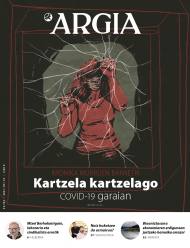

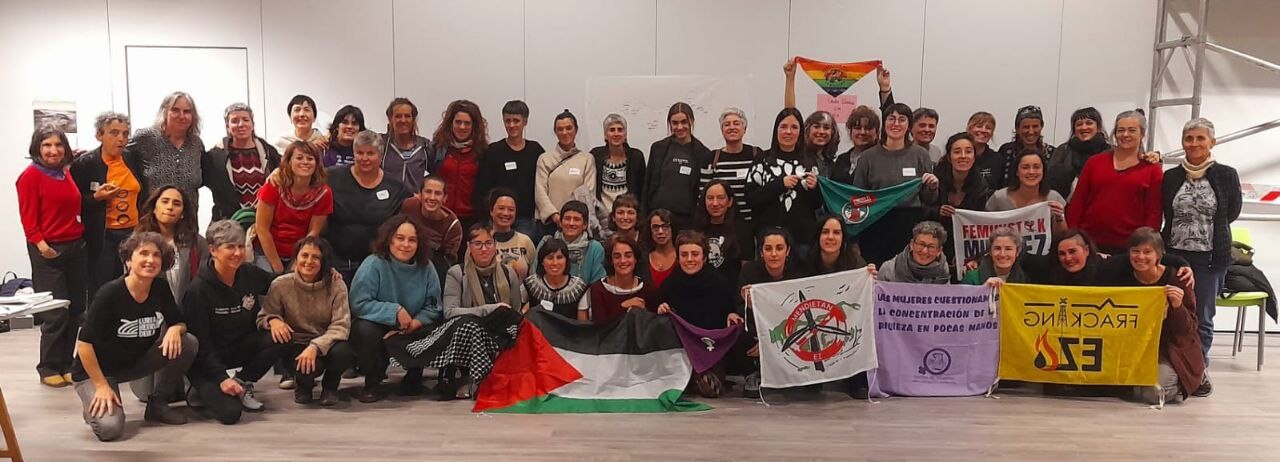

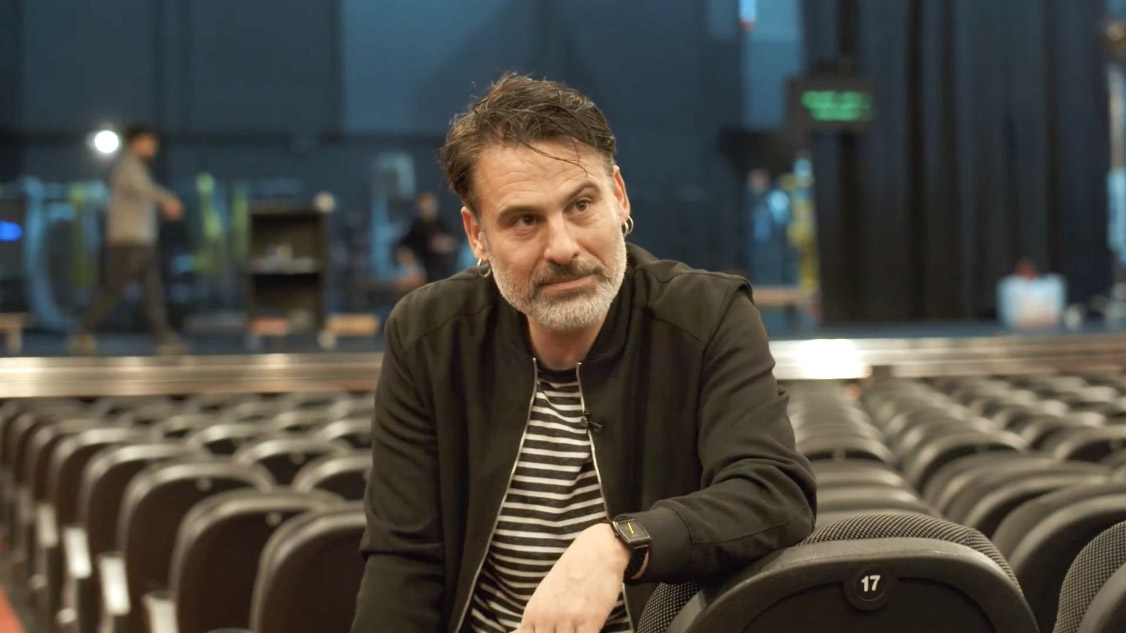

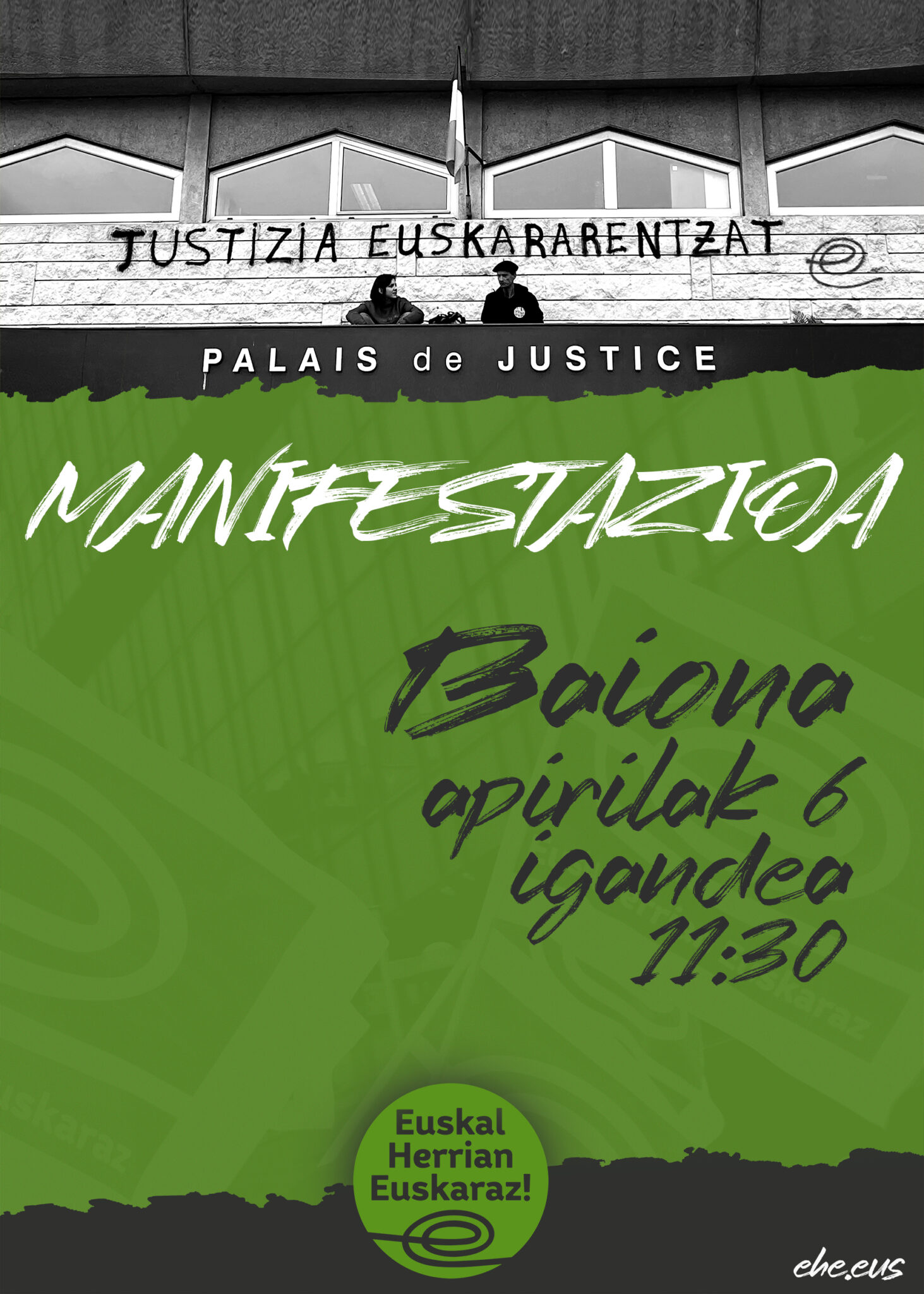

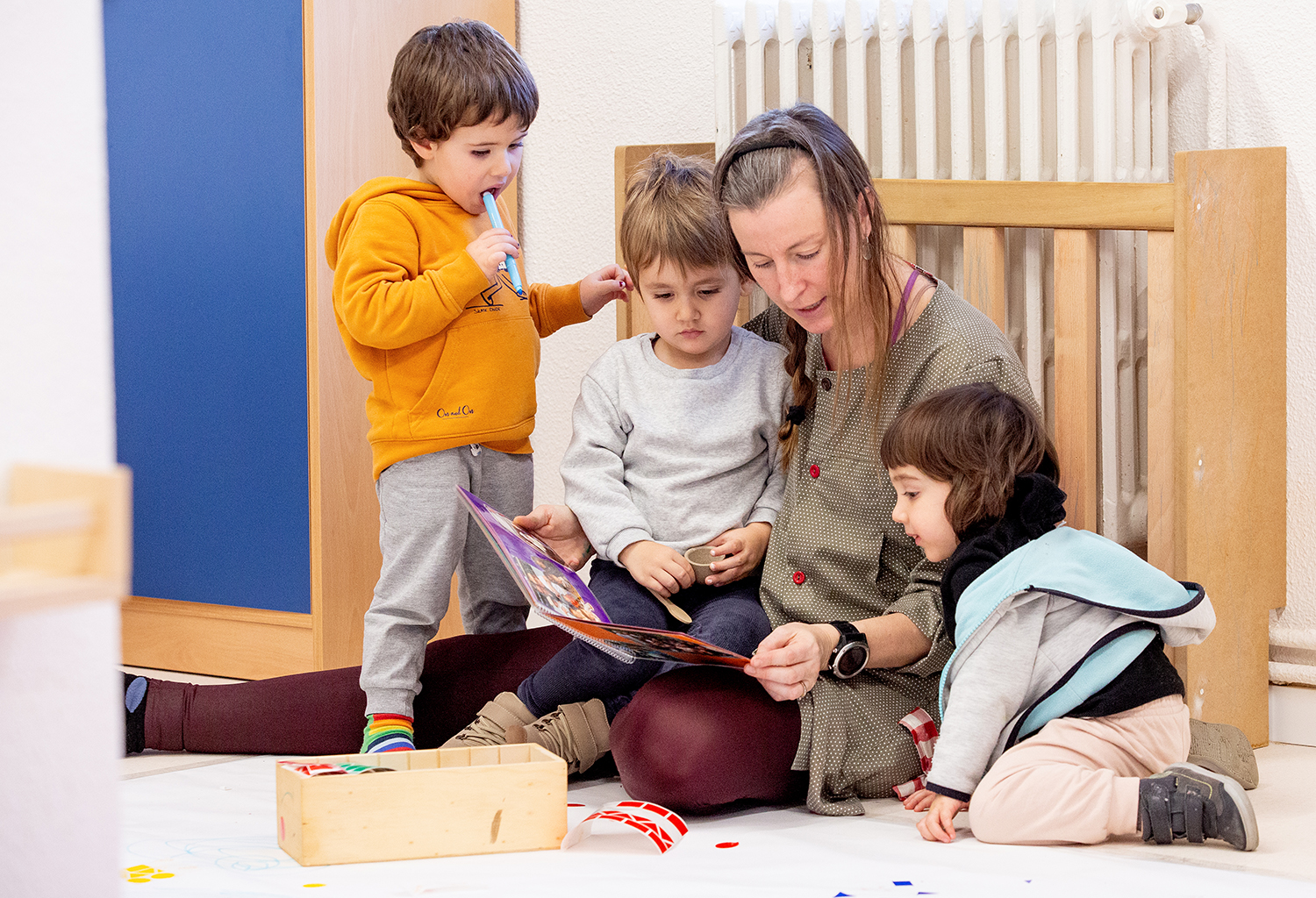
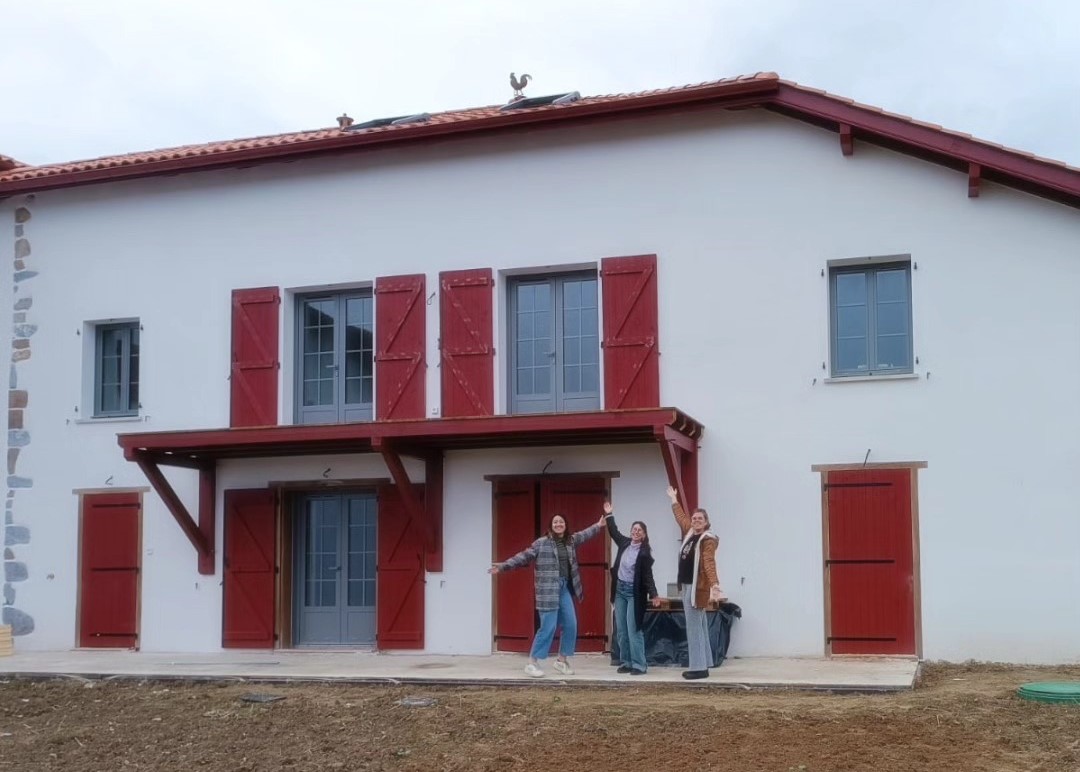

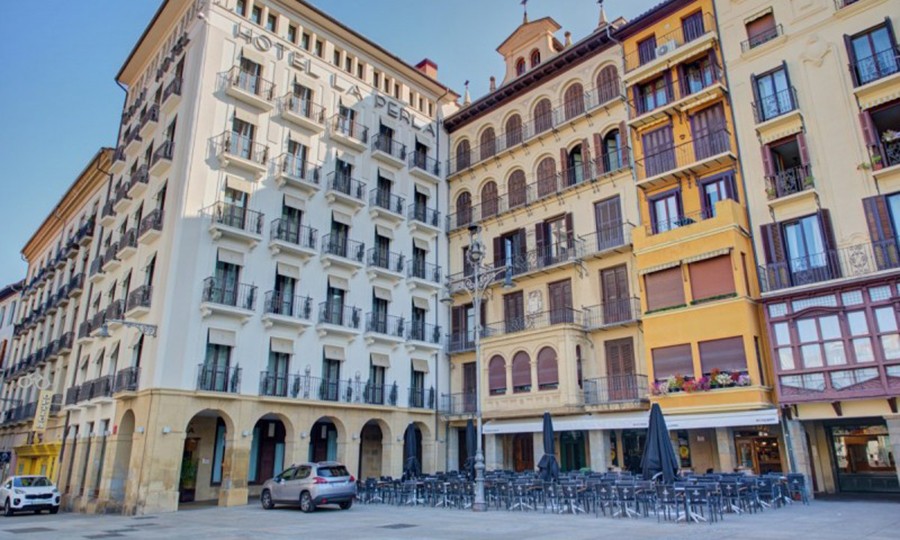

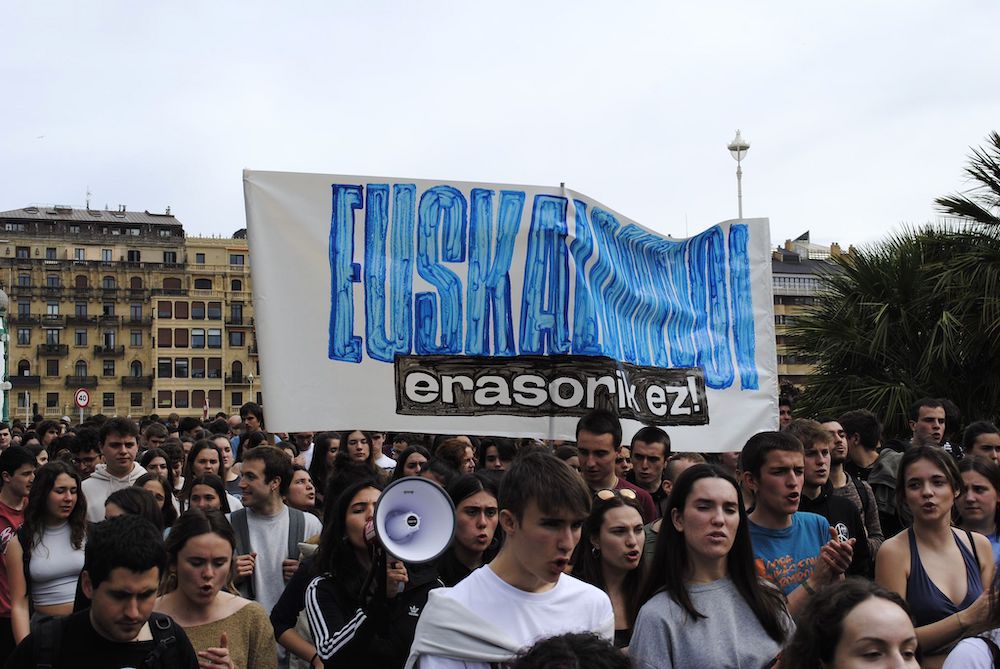
.jpg)

